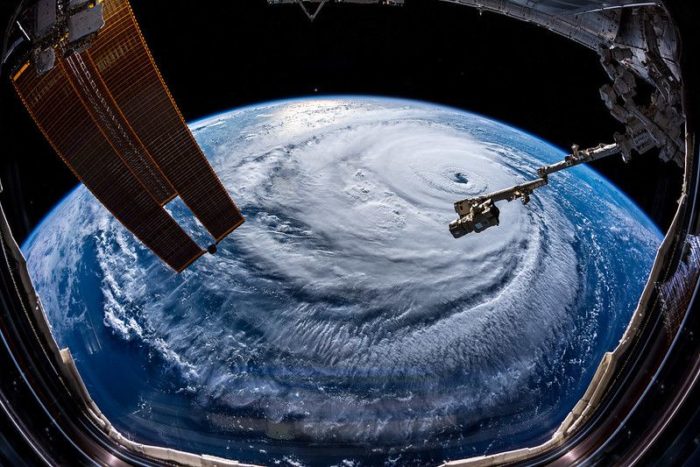
It’s up to you, because “people in power give lip service to the seriousness of the climate crisis, and then they continue to invest in new fossil fuel infrastructure.”
In a report released this month, the Intergovernmental Panel on Climate Change (IPCC) basically confirmed everything that we already knew about our planet’s devolving, warming climate. We’re all but locked in for at least 1.5 °C of planetary warming (we’ve already passed 1 °C), which will carry serious consequences for all life on this planet.
As the leading researchers explain our predicament, if we continue emitting past this threshold, we will significantly increase our likelihood of triggering feedback loops that increase the warming and destabilization of our climate faster than anybody would like to imagine. Human-driven warming alone could be enough to trigger the next mass extinction.
Compiled by a couple hundred of the world’s top climate scientists utilizing thousands of peer-reviewed studies, the “physical science basis” report reaffirmed the fact that the climate crisis is “unequivocally caused by human activities,” and that we are already feeling many of its effects, including increasing extreme heat, drought, wildfires, storms, sea level rise, and flooding.
The IPCC is hardly a radical organization. The summary for policymakers (the short version of the report at 41 pages, compared to the nearly 4,000 page full report) had to be approved by representatives from each of the IPCC’s 195 member countries.
“Despite that conservative nature of these reports—if there’s any bias, it’s conservative, it’s for less climate change—this report was quite stark in its findings, and concerning,” said Paul Kirshen, a professor of climate adaptation at UMass Boston and a lead author of the previous IPCC Assessment Report.
The sliver of good news contained in the report? We still have time to save ourselves from the worst consequences of the climate crisis … if we just stop using fossil fuels.
“If we manage to get to zero emissions by mid-century, we pretty much stay at 1.5 degrees of warming,” Kirshen said. “If we don’t reach net-zero emissions by 2050, there will be huge, perhaps unmanageable consequences.”
For people within the climate movement, this is hardly breaking news.
“We’ve known from thousands of previous studies and reports that we are in a climate emergency, and that this is absolutely human driven,” said Alex Chambers, a climate justice organizer with Extinction Rebellion Boston. “Within the climate action sphere, we have this unofficial holiday—IPCC report day. Activists joke that it’s the one day when the government and people in power give lip service to the seriousness of the climate crisis, and then they continue to invest in new fossil fuel infrastructure.”
Chambers said that while the organization saw a spike in sign-ups following the report, they hope that the focus on the climate crisis will persist beyond just the 48-hour news cycle. The group is currently busy planning an action in the Seaport District on Aug. 28, and is urging attendees to dress in half business attire and half beach attire (as the district just might be underwater before the end of the century).
Elsewhere, members of the Boston chapter of the Sunrise Movement are focused on advocating for a Green New Deal, to address the climate crisis in a comprehensive and equitable manner.
“Locally, we are invested in electing leaders who will fight for that goal, and enabling future bold legislation by reforming [Massachusetts] house rules with the Act On Mass campaign,” said Simon Metcalf, a trainer and longtime member of Sunrise Boston.
Metcalf also noted that on a national level, they are pushing for “the most expansive climate legislation possible enacted in the Democrats’ reconciliation bill in the Senate,” with a particular focus on a fully-funded Civilian Climate Corps, which they hope will provide more than a million people with well-paid union jobs to help prepare communities for the effects of the climate crisis.
For those looking to get involved, other notable local climate and environmental justice issues and fights include:
- The proposed electrical substation on the banks of the Chelsea Creek in East Boston, located near a playground in an environmental justice community
- The proposed oil and gas-fired “peaker” plant in Peabody
- The recently built methane compressor station in Weymouth
- Boston’s proposed emissions standards for buildings, an essential step in cutting the city’s carbon footprint, which will have a working session on Monday, August 23 at 12-3pm, able to be viewed through the City Council livestream.
- Boston’s preliminary mayoral and city council elections, which will have major implications for the city’s response to the climate crisis, which will be held on Sept. 14.
Two additional IPCC reports—on the human impacts of the crisis, and the necessary course of action—are set to be released in 2022, rounding out the group’s Sixth Assessment Report. These are sure to be just as dire and anxiety-inducing. Until then, climate justice activists in Boston and beyond will be hard at work.
